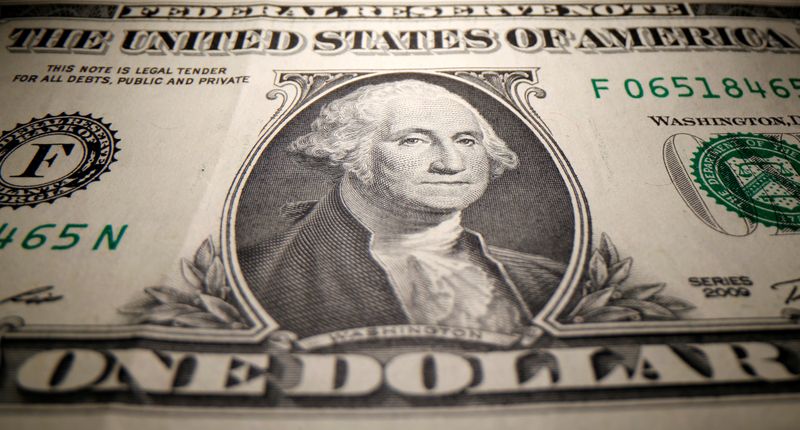By Kevin Buckland
TOKYO (Reuters) – The dollar headed for its first winning week in three on Friday after rebounding from a payrolls-induced sell-off, as investors continued to ponder the timing of a tapering of Federal Reserve stimulus.
The dollar index, which gauges the greenback against six major peers, was little changed on the day at 92.541, remaining on course for a 0.49% weekly rise.
Last Friday, it sank to the lowest since Aug. 3 after data showed the U.S. economy created the fewest jobs for seven months, reducing the odds of an imminent reduction of the Fed’s asset-purchase programme.
Since then, a number of officials have come out to suggest a taper is still likely this year though, including Fed Governor Michelle Bowman, who said overnight that the weak August labour report won’t throw the central bank off course.
Data on Thursday showed that the number of Americans filing new claims for jobless benefits fell last week to the lowest level in nearly 18 months, offering more evidence that job growth was being hindered by labor shortages rather than cooling demand for workers.
“The Fed looks set to taper later this year, underscored by recent comments this week,” Mark McCormick (NYSE:MKC), global head of FX strategy at TD Securities, wrote in a research note.
However, even with the trend toward monetary policy becoming less accomodative globally, financial conditions remain ultra-loose, which “binds how much room the USD has to run and favors selling rallies,” McCormick said.
The euro was flat at $1.18235 on Friday, on track for a 0.47% decline this week.
The single currency got some small measure of support overnight, after the European Central Bank said it would trim emergency bond purchases over the coming quarter, as widely expected.
In the past two quarters, the bank has bought around 80 billion euros worth of debt each month. It provided no numerical guidance for the three months ahead, but analysts had predicted before the meeting that purchases would fall to between 60 billion and 70 billion euros in those months.
“It was a big event for economists, not so much for traders,” Chris Weston, head of research at broker Pepperstone in Melbourne, wrote in a note to clients. “The volatility was not there.”
Euro support at $1.18 “needs to give way for shorts to get any real traction here,” he said.
The dollar was little changed both on the day and for the week at 109.71 yen, still meandering in the middle of its range of the past two months.
The Aussie dollar slipped 0.07% to $0.7363, heading for a 1.16% slide this week.



